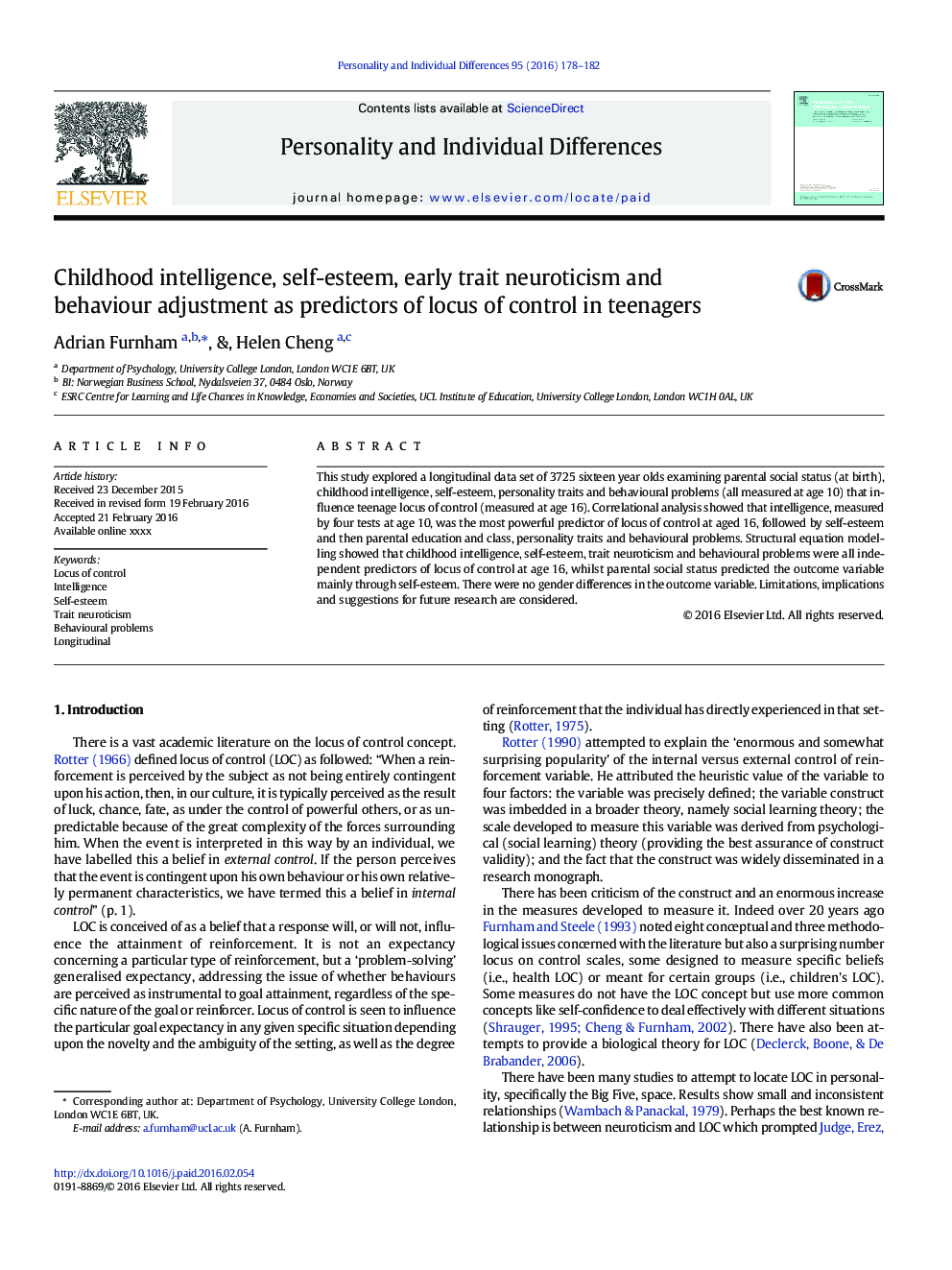| Article ID | Journal | Published Year | Pages | File Type |
|---|---|---|---|---|
| 7250311 | Personality and Individual Differences | 2016 | 5 Pages |
Abstract
This study explored a longitudinal data set of 3725 sixteen year olds examining parental social status (at birth), childhood intelligence, self-esteem, personality traits and behavioural problems (all measured at age 10) that influence teenage locus of control (measured at age 16). Correlational analysis showed that intelligence, measured by four tests at age 10, was the most powerful predictor of locus of control at aged 16, followed by self-esteem and then parental education and class, personality traits and behavioural problems. Structural equation modelling showed that childhood intelligence, self-esteem, trait neuroticism and behavioural problems were all independent predictors of locus of control at age 16, whilst parental social status predicted the outcome variable mainly through self-esteem. There were no gender differences in the outcome variable. Limitations, implications and suggestions for future research are considered.
Related Topics
Life Sciences
Neuroscience
Behavioral Neuroscience
Authors
Adrian Furnham, Helen Cheng,
